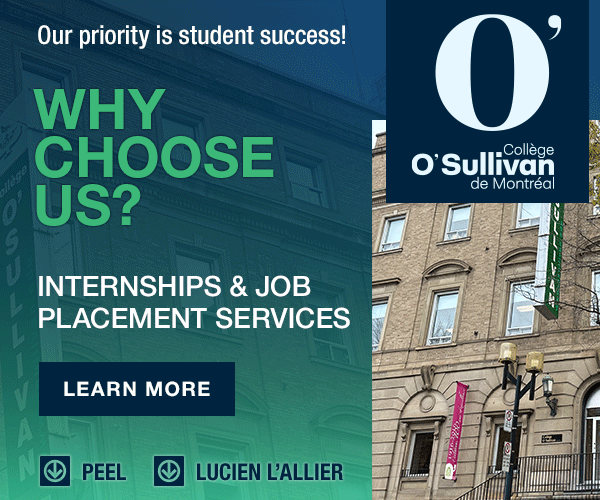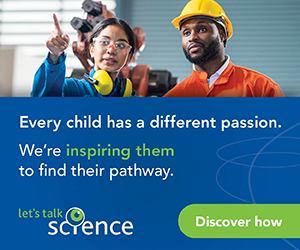As the focus on equity, diversity and inclusion (EDI) in the workplace grows, District 3 Innovation Hub is creating a supportive environment for neurodivergent individuals in the startup ecosystem.
"Back in 2019, the Social Innovation team started to discuss adapting our programming to be more human-centred," shares Julie Hamel, head coach and social innovation lead at District 3. Hamel has worked with more than 500 startups in Quebec over the past 20 years.
"Social entrepreneurs are very in tune with the problem they want to solve. They have so many more variables to validate using the triple bottom line approach they look at their environmental footprint, societal impact and their economic viability," she explains.
"The pandemic forced us to change our work behaviours. Through adapting our service offerings for providing online content, we discovered that many of our participants were starting to unmask and talk about their struggles and needs to move forward in developing their business."
Create an environment where everyone can thrive'
Many neurodivergent people face high rates of burnout and unemployment in traditional workplaces due to a lack of inclusion and accommodation. By transitioning to entrepreneurship, they can create flexible environments tailored to their needs. District 3 recognizes the unique strengths of neurodivergent founders and sees entrepreneurship as an ideal option for them to thrive.
Zachary Markofsky, an organizational psychology practitioner and data scientist and consultant to District 3, emphasizes the importance of building an inclusive work culture from the beginning.
"Above all, a neuro-inclusive environment is a psychologically safe environment. If everyone at a small startup feels they can talk openly without fear of any backlash that they can speak their mind and show emotion then everything else will come a lot more naturally."
Entrepreneurship allows neurodivergent individuals to bypass the challenges they often face in conventional work settings, such as masking or fitting into environments not designed for them. By actively listening and adapting to the community's needs, District 3 aims to foster an inclusive and supportive culture where founders feel comfortable being themselves.
"When you create a space that allows neurodivergent people to thrive, you create an environment where everyone can thrive," Markofsky states, adding that the needs of a neurodivergent individual are generally universal needs. For example, fostering a work environment centred around openness, compassion and transparency benefits all people.
District 3's human-centred approach focuses on nurturing the individual behind the startup and providing neurodiversity training and inclusive practices to ensure a welcoming environment for all founders.
Through one-on-one coaching programs and hybrid events, District 3 offers tailored support to help founders succeed. By addressing mental health, stress management and creating sensory-friendly environments, they aim to remove the barriers that neurodivergent entrepreneurs often face in their journey to success.
We support each other'
Terry D'Agostino, BA 08, is CEO and founder of the startup PAWSOME Concierge. She reflects on her journey at D3 and the freedom and belonging she discovered as an entrepreneur.
"When I walk in the room and say I have ADHD, people are like, Oh, well, yeah, we all do.' So, it was very welcoming for me to have people who were similar in so many ways, who had a passion, who had a drive to change, and not being afraid of it. Even though it's hard, we continue, and we support each other."
Adapted environments have a huge impact on worker retention.
Kelly Bron Johnson, BA 04, is founder of Completely Inclusive and the Autistic Entrepreneurs Network. Johnson describes the repercussions of resisting neurodiversity in the workplace.
"Employers should recognize that there are different types of people, and when you try to force somebody to be something that they're not, you're going to completely demotivate them; you lose that worker."
With personalized accommodations, 72.1 per cent of neurodivergent people are likely or very likely to stay at their workplace. Without adjustments, that drops to 31.6 per cent, according to findings from Genius Within.
Looking ahead, District 3 is further enhancing its workspace and culture by incorporating feedback from the community. Initiatives like sensory-friendly spaces and meditation areas will support neurodivergent founders in managing anxiety and stress.
"District 3 is committed to building an inclusive environment where all voices are heard and innovation can thrive," says Rosilda D'Arienzo, neurodiverse lead at D3. "By prioritizing inclusivity, District 3 demonstrates how fostering neurodiversity benefits both individuals and the broader entrepreneurial ecosystem."
For the latest updates on District 3 initiatives on neurodivergence and entrepreneurship at Concordia, visit the news webpage or sign up for the D3 newsletter.
Explore your startup idea by applying to D3's free programs on their website.












